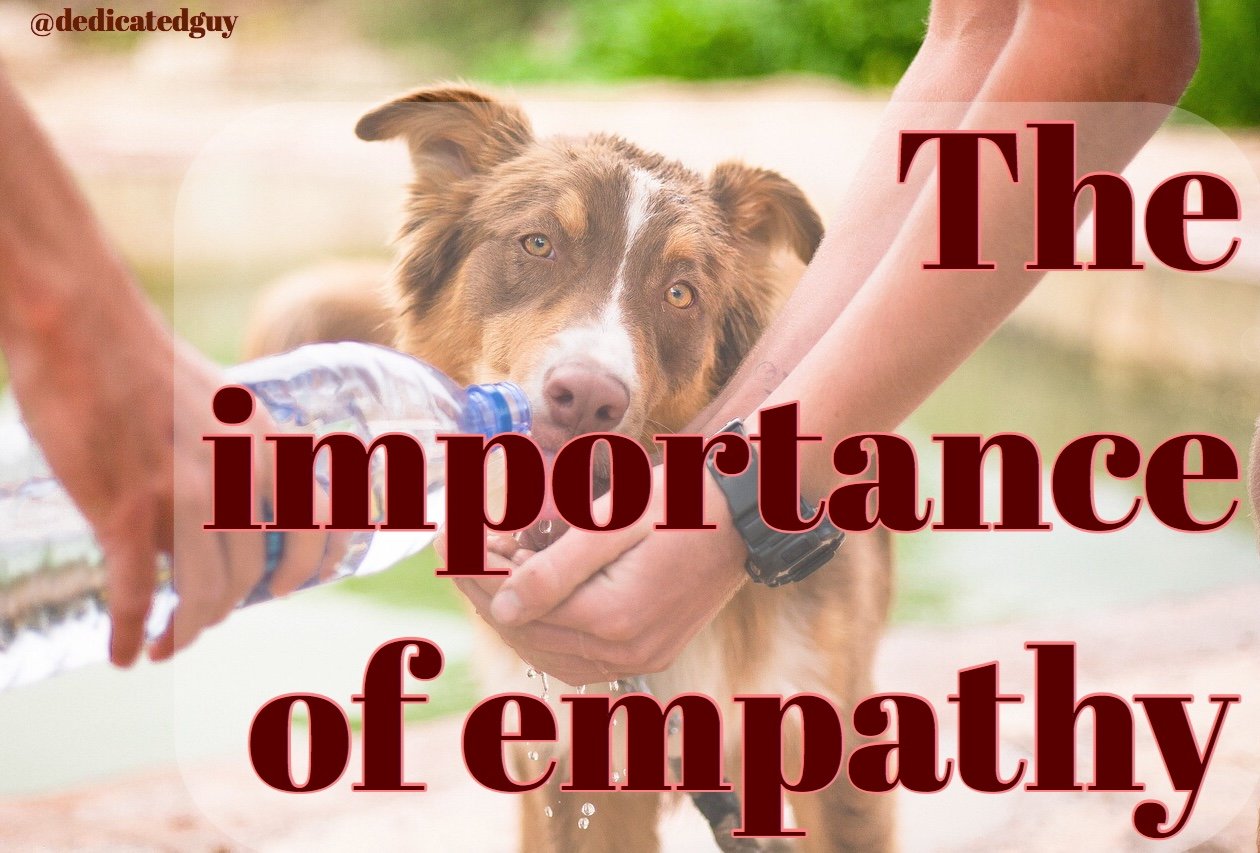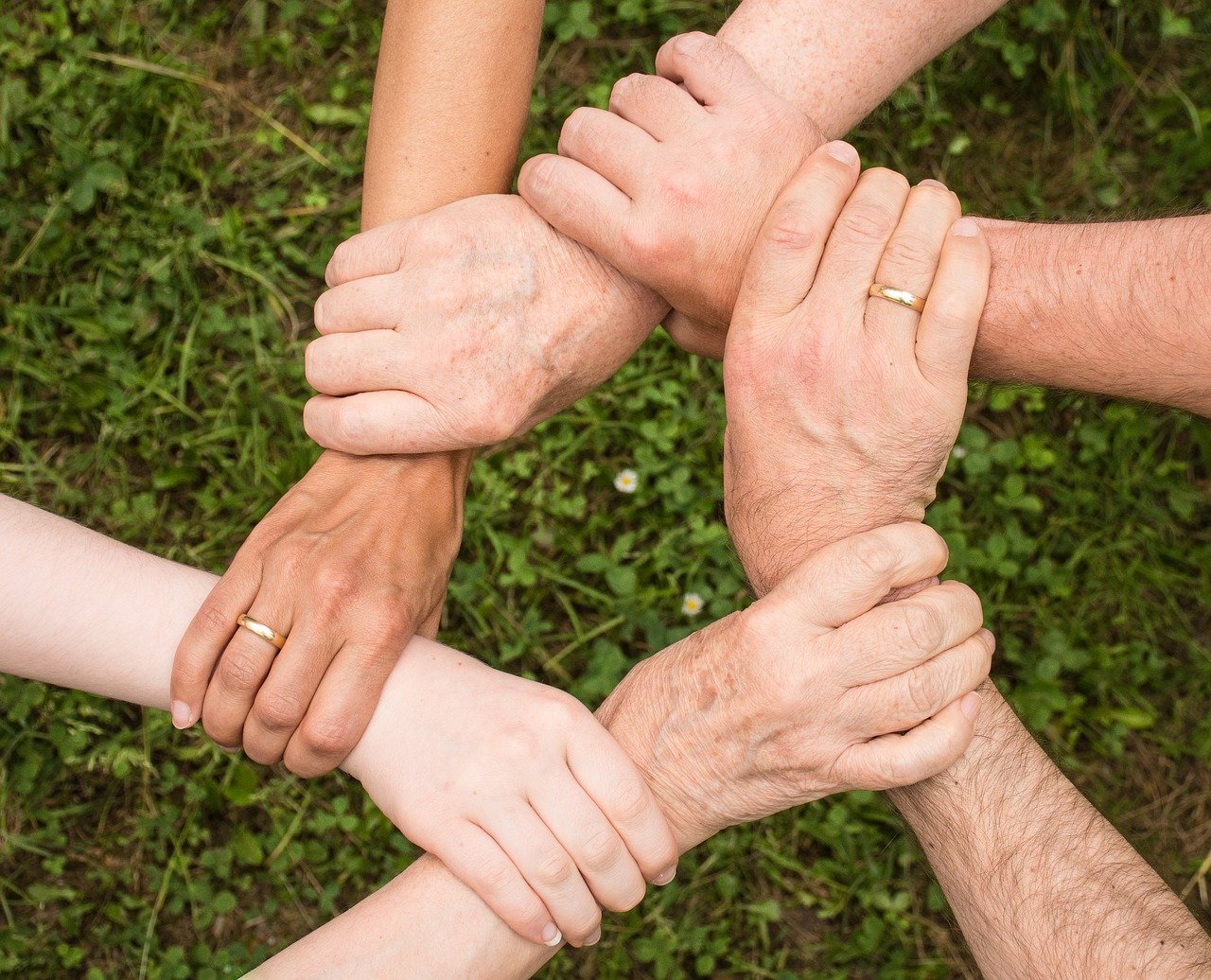
We human beings have important differences compared to living beings on this planet, the most important one is of course our intellect and our way of thinking, that allow us to be able to appreciate abstract things such as beauty, tenderness, passion, and the whole range of emotions that make us, in the end, humans.
And since yesterday we were talking about human qualities and its role in developing our emotional intelligence, today, I would like to share with the community, what is the single most important quality.

Empathy
Someone could ask, why empathy and not love or intelligence? This is very simple to explain, we could use Hitler as an example.
It is fair to say Hitler was indeed very intelligent with an amazing talent to inspire and convince others about his ideas no matter how horrible they were. He was also a person who in his own way had a deep love for his beliefs, and for every "Aryan" person, his "perfect race", but nevertheless that did not prevent him from murdering millions of Jews. Why? Because intelligence does not necessarily imply empathy, and not having empathy prevented him from feeling love for the Jews.
Empathy is so important, psychologist Steve Taylor says “A lack of empathy enables psychopaths to treat other human beings callously, as objects who have no value except as a means of satisfying their desires.” | Source

What is Empathy?
Empathy is defined as:
The ability to understand and feel what another person is experiencing. Empathy is a necessary and essential component of any relationship or social group. It is at the root of all pro-social behavior and compassionate action. | Source
Empathy is the experience of understanding another person's condition from their perspective. You place yourself in their shoes and feel what they are feeling. | Source
Perhaps when its proposed like in those 2 definitions, it sounds like empathy was something abstract or some sort of divine ability, only for some chosen ones. But the reality is that everyone at some point develops empathy, to a greater or lesser extent. It would be good to develop and maximize it because it will strengthen us as individuals and help us in our relationships because it allow us to comprehend what the other feels and after achieving a high level of empathy we might even be able to understand the response to those feelings.

There are actually 2 types of empathy:
Affective (emotional) empathy and cognitive empathy. Affective empathy, also called emotional empathy, is the ability to react with an appropriate emotion in response to another person’s mental state. Cognitive empathyis the ability to understand another person’s mental state without necessarily feeling it. | Source
Affective empathy can be further divided into two categories: empathic concern and personal distress. Empathic concern refers to feeling compassion for others who are suffering, which often leads to reaching out to help the one in need. Personal distress refers to experiencing self-oriented feelings of anxiety or pain in response to another person’s suffering. Personal distress may result in an egoistic reaction to another’s suffering, rather than a helpful reaction. For example, personal distress might cause someone who witnesses a car accident to withdrawal from the scene, rather than help. On the other hand, a person who feels empathic concern will stay on the scene and help. | Source

How could we develop our empathy?
The ability to empathize requires for us to identify our own feelings, we must be aware of ourselves, avoid having prejudices, and especially, have the ability to listen and observe the other person carefully, so we could figure out ways to actually see the person behind the words and looks.
Empathy does not consists in understanding the other person so we could take advantage from it, nothing could be further from the truth, rather it consists in understanding the other person for his/her gain. The attention is almost essential to be able to be empathetic. If while we are talking with another person we have our thoughts in another subject, or we are thinking about our own problems, or about what we will say when the other person finishes talking to rush it off, we can never really find out what this person is actually going through, and therefore, we wouldn’t be able to help him/her.

This is about being able to understand beyond the verbal interaction, and about the detachment of our own circumstances to get, as they say, “to put yourself in someone else’s shoes"
We should not forget that people do not always express what they feel in words, we can be talking about one thing and feeling something that is totally different, or we can say nothing while actually feeling something very real. Anyone who manages to develop empathy would be able to see through any words and gestures.
Putting yourself in someone else’s shoes
It is normal that nowadays we become a little self centered without realizing it, worried only about our issues, and thinking only about ourselves. But that makes us take the opposite path towards developing empathy. Empathy motivates us to feel the pain of the other o at least to understand it, to maintain the bonding with the people around us and to consolidate the relationship that we have with each of them.
Empathy becomes easier to put into practice as we get to know the person, because having frequent relationships allows us to discover the reasons for bad mood, happiness or sadness of that person with whom we relate, and also to understand the person’s way of acting consistent with each state of mind. The better we know a person, the more connected we feel, and the easier it becomes to “read” him/her.

Why do I think empathy is our most important quality, even more than love or intelligence?
Because of the power it has to allow us understand all those other qualities.
Once we have learn how to put yourself in someone else’s situation, you will understand what it feels like to be nice with someone, or what it feels like to be appreciated, or what it feels like to have compassion, or on the other hands, what it feels like being insulted, mistreated, shamed, abused or discriminated against.
Empathy is what allows us to appreciate that every person has feelings, that women should not be abused, that gays should not be discriminated against, that we should protect children, that we should take care of the world for the benefit of our future generations.
Empathy is, in my opinion, the mother of all the good things about us human beings, and I am quite convinced that the people who contribute the most to the world, and particularly to our well being, are people whose minds are wired to feel more empathy than others, so they eventually figured out ways to develop things that improves the life of many people.

Conclusion
Empathy is a great quality and we should value it as such. When someone empathizes with us we have to know how to express our appreciation for it, and when someone needs us, we must develop this skill to the best of our abilities so we can offer proper support to the other person, which always means great satisfaction for us.

It should not be difficult to imagine what could be the result if every person decided to put some time into getting better at this. I am sure a lot of problems would be solved simply be an increase of empathy in the people involved, that might sound a little bit like an utopia, but there is no argument that can contradict these affirmation: with more empathy, there will be less problems. As simple as that.
And since the first step to improve things is to improve ourselves, it would be wise for us to start forming and increasing the amount of empathy we can feel.
Do you think we could simultaneously be emphatic and analytical/objective/rational?
Do you think in the future, with advances AIs and robots, we would be able to feel empathy towards “artificial” beings?
References
psychologytoday – understanding empathy
Image sources
All images are from pixabay

If these titles sound interesting to you, I assure you the articles will be even better!

Empty Nest Syndrome, an epidemic in Venezuela.
Today’s lesson: Why do we feel love? What is its origin?
Thoughts about reality and our unique perception of it.
The importance of Psychological Flexibility.
Let's talk about Philophobia, the fear of falling in love.
Thoughts about Natural Selection.
Let’s talk about emotional intelligence
